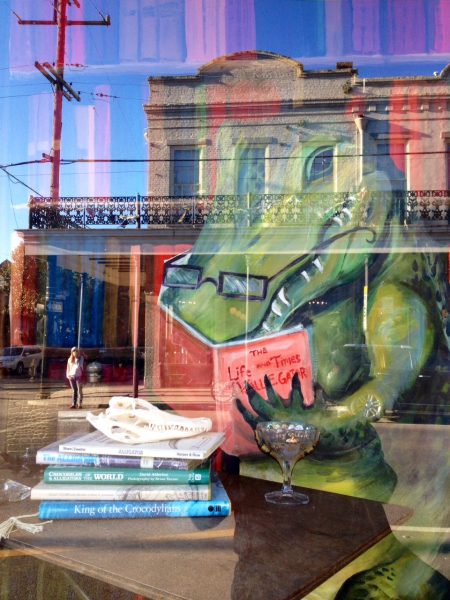One thing that I thought was pretty amazing about “To Hold but Not Have” was how you did so much with so little. Tell me a little about the composition and impetus of this story.
My friend Georgia Bellas and I have a weekly writing club where we submit new or edited work by midnight each Wednesday. We have a very strict rule that if you don’t meet the deadline then you have to do burpees (full body exercise moves) the next day. I wrote this particular piece late one Tuesday night while thinking about the half-life of old dreams—how you let them go, but they’re never really gone. Even in their decay, they remain tethered to memories. I thought that composing short bursts driven by sound and vision seemed like a good way to explore that idea, although at the time I was also really dreading burpees and needed to write fast so that I didn’t miss my midnight deadline.
I loved the metaphor of the Mexican sunflowers, which live on years after the relationship the narrator remembers has died. The poignancy of that final paragraph in particular reminded me a bit of Alice Munro. What other writers do you feel influence your work?
Alice Munro is definitely a writer I return to again and again. There are a couple other writers, who, like Munro, I’m always revisiting: Marilynne Robinson and Wisława Szymborska immediately come to mind. The intimacy of their characters is something I’m drawn to—I can really see and understand the worlds they build. I’m also a huge Patti Smith fan—I just started reading M Train and it’s absolutely stunning. Smith’s Just Kids was one of the most gorgeous and touching books I’ve ever read. Reading the work of these women both inspires and reminds me to observe the world around me, to pay attention and remember the details.
Do you have any particular writing process? Is there a time or place in which you find it easier or more difficult to be creative?
I used to think I needed solitude and a substantial chunk of time to write. Consequently, it was hard to get much writing done. After I had kids, I realized that if I wanted to keep writing, I had to do it with whatever morsels of time I could claim as my own: while the baby napped, after everyone was in bed at night, or at the car mechanic. I’ve also worked as a professional writer, where deadlines sometimes forced me to start writing before I felt sufficiently inspired. I always managed to meet my deadlines and eventually I’d find my way through the assignments. Similarly with my fiction writing, getting it done depends most on making myself sit down to do the work, often before I feel ready. The nightly temptation to binge-watch episodes of Mad Men is very real for me, because I’m usually fried at the end of the day and want someone else to tell me stories. But I always feel better after writing my own.
What fiction projects are you currently working on?
Lately I’ve been in a drafting mode, so I have a fair amount of seedling stories. The weekly writing club I mentioned earlier has really pushed me to create new work without worrying about how rough it might be. I spent a long time drafting a novel that I finally admitted that I’m not going to work on anymore, at least not in the near future. It was a disappointing decision to make, but I learned a lot about writing in the time I spent on that project, so that’s definitely worth something. When I began writing short fiction again, it felt really freeing and I remembered why I love writing. I’d like to write another novel, but before I do, I need to be more thoughtful about committing to the right story. In part, I’ve been casting about for a bigger story through the short pieces I’ve been drafting. Whatever form and length my writing ultimately takes, I want more than anything for it to feel fluid and true.


